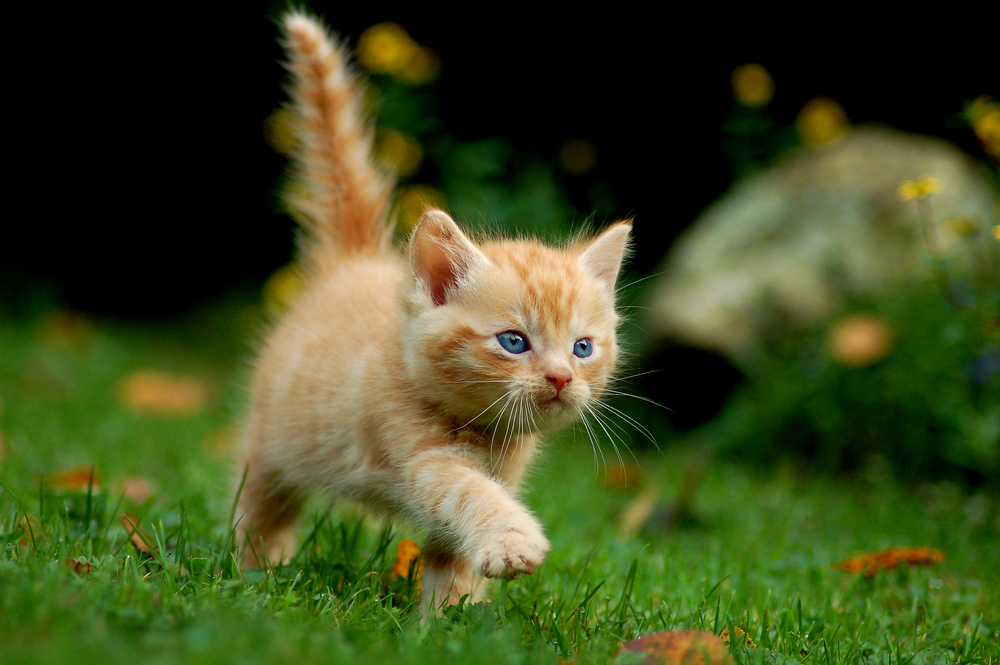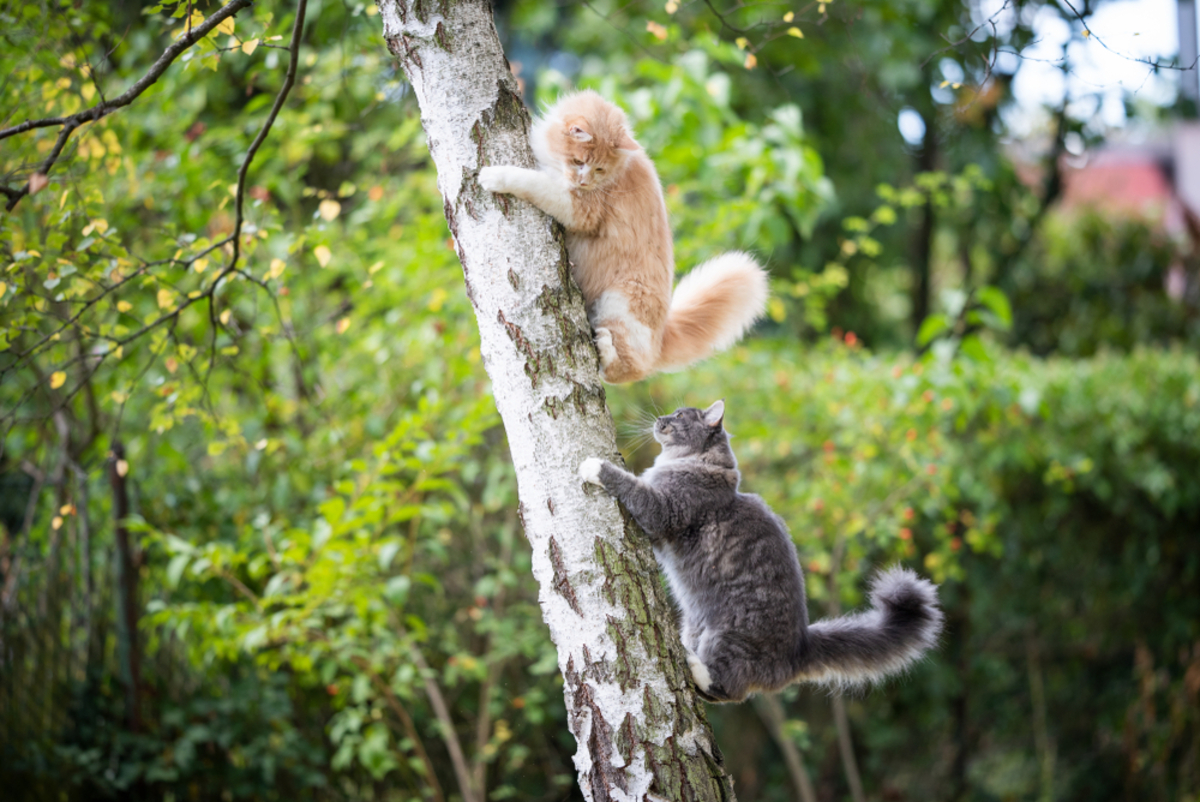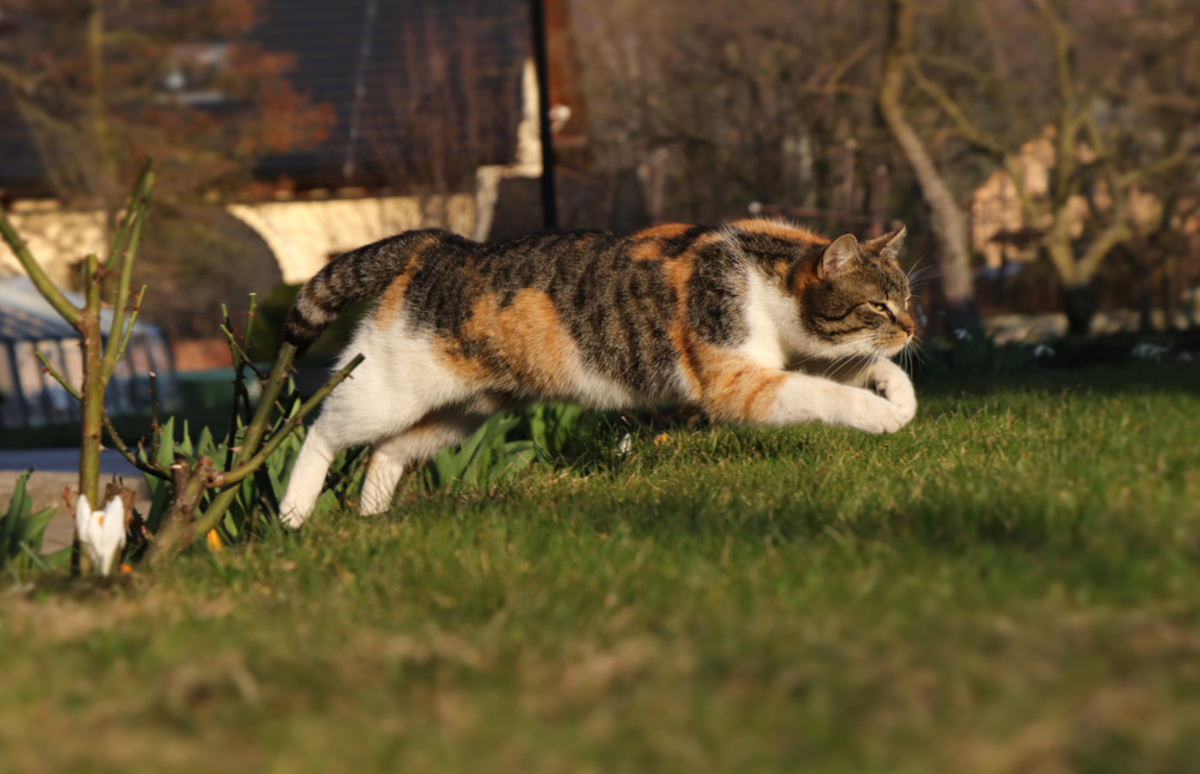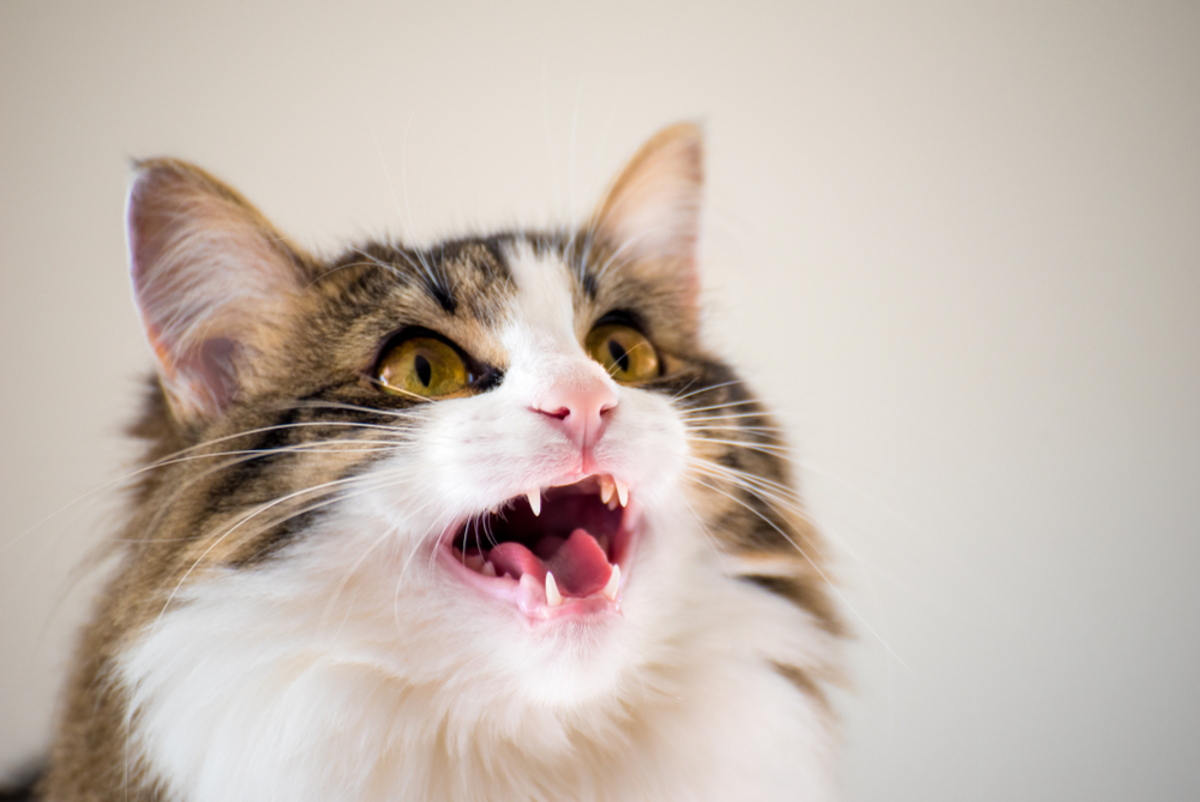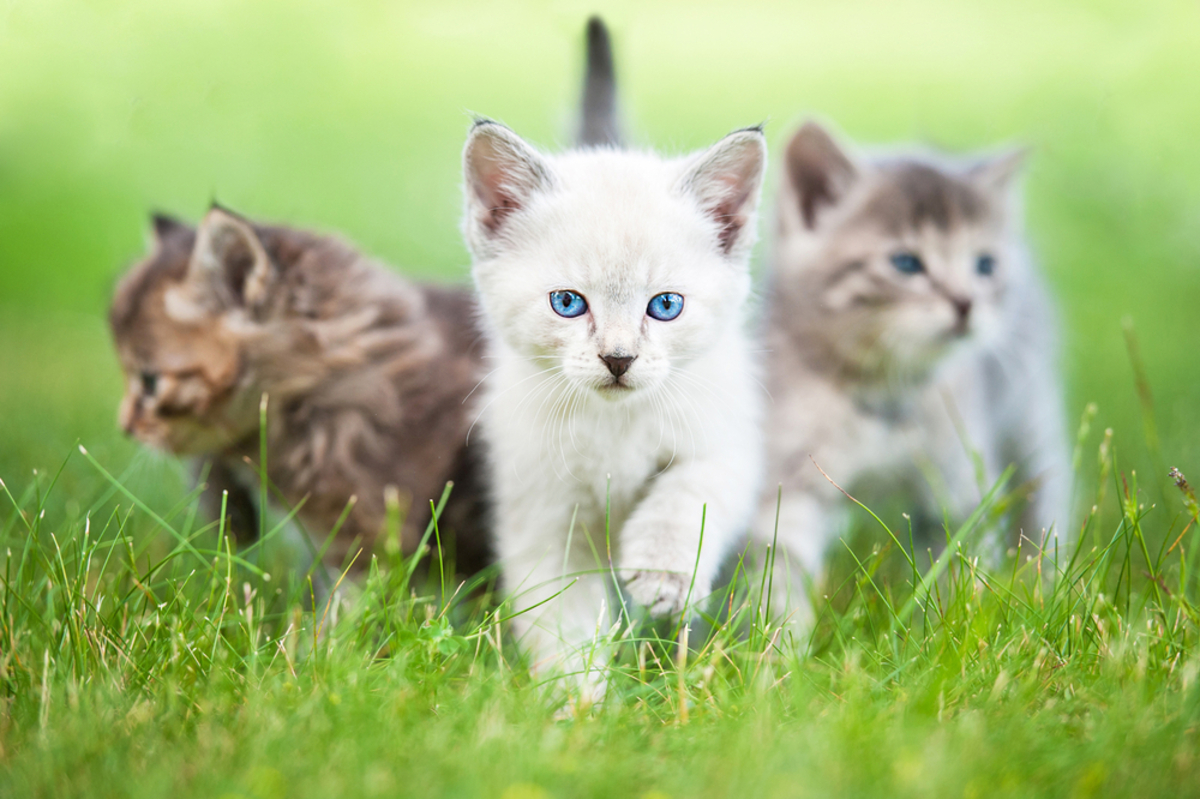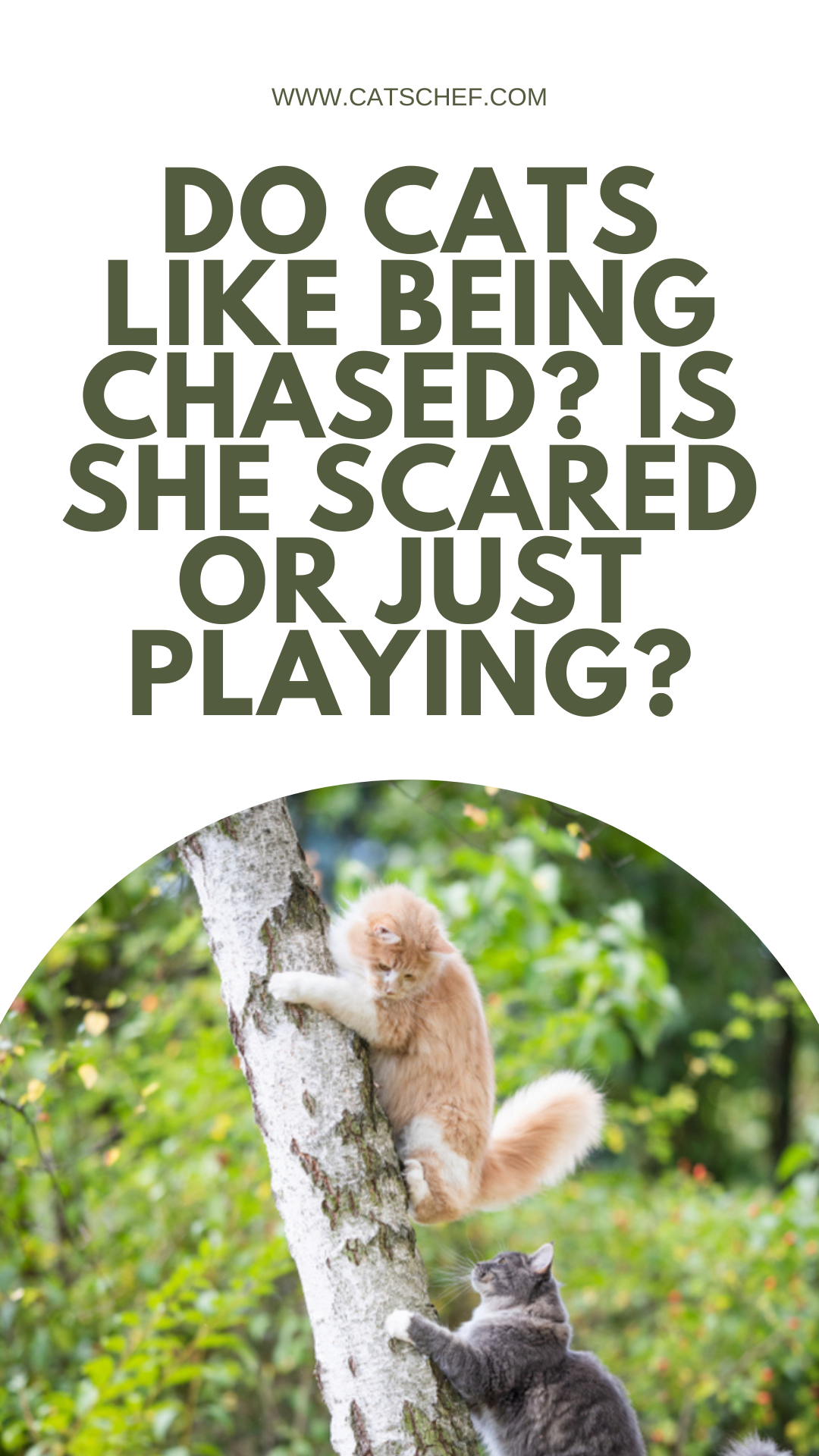📖 Table of Content:
Is your kitty looking at you with her eyes wide open, waiting for you to make a move? When you do, she runs away to the other room, leaving you wondering… Do cats like being chased? What in the world is your cat asking you to do?!
It looks like she’s inviting you to play with her, but is that really the case? Unfortunately, our kitties can’t talk, no matter how badly we wish they could. Understanding your cat’s body language is the only way you can understand what your little fluff is trying to let you know.
This is one of those situations. Our feline friends don’t like to be bored. Although they spend most of their day sleeping in the hidden corners of our homes, it’s a whole different story when the zoomies hit. They’ll do everything in their power to get our attention and let us know they want to play.
A bored kitty is a sad kitty, so make sure you spend some of your free time playing with your cuddle buddy. She won’t need more than 10 to 15 minutes before she gets bored with it, and you might use a break from your work, too. Both of you will end up happy and ready to move on with your day!
Okay, she’ll probably go back to napping, but that’s just how she likes it. So, do cats like being chased, or should you look for other ways to spend some quality time with your kitty? Let’s find out together!
Do cats like being chased?
Are you imagining things, or is your little one inviting you to play? Well, some of the cats like being chased. If your kitty is inviting you to run after her, she’s probably one of those who like it, so go ahead!
Sometimes, your kitty might chase you, stop suddenly, and wait for you to make your move. If this happens, your feline buddy has discovered a new form of play with her favorite human! It comes from her hunting instincts, which is why it may be a good idea to grab a ball and bring it into play, too.
Test some toys and see how she likes them. Some cats simply prefer chasing around with their favorite human instead of playing with balls and strings. See it as a game of tag! She’ll chase you until it’s your turn to chase her. Prepare to see your house turn into a playground…
See what your kitty is doing and mimic her. If she’s a slow hunter, you should act like that, too. No matter how silly you may feel… Play a game of hide and seek, peek at her behind the wall, and watch her eyes light up in amusement!
All in all, you should try out different methods and see what your fluff likes the best. You’ll do that by understanding her body language.
Signs your kitty is in a playful mood
We now know that some cats do like being chased, but how do we know when they’re in a playful mood? As I said, understanding your kitty’s body language is the key here, so let’s see what are some signs that your fluff is ready to play.
1. She seems energetic
If your cat has a sudden burst of energy, it’s a good indicator she’s in a mood to play. You might notice her scratching or climbing the furniture, or running around your home like it’s her playground. Catch her while she’s the most active and start playing with her. She’ll love it!
Regular playing sessions are important for your feline’s physical and mental health. When you see she’s in the mood to play, take full advantage of it! She’ll be a much happier fluff.
2. She’s following you
When a kitty wants you to play with her, she might follow you everywhere you go. No, your cat isn’t stalking you. That’s all a part of her game! As a natural hunter, this behavior is in her blood. She might act like she’s preying on you, or even suddenly jump on your leg.
She’s trying to get your attention! When you notice this, let her use her hunting instincts. Slow down, let her “hunt you,” and then see if she’ll enjoy you chasing her back.
3. Her body language
Fluffs who are in the mood to play will show it in their body language and posture. For example, if her ears are raised and her tail is low, watch out. She might jump on your leg or even bite you playfully and then run away expecting you to follow her.
Her airplane ears aren’t the only indicator. Look at her eyes. If her pupils are dilated, it usually means she’s focused on something. Whether it’s you holding something or a movement you’ve made, it triggered her natural instincts and she’s ready to play.
4. She’s meowing loudly
Although you might find this one especially annoying, meowing is the only way our feline friends use to communicate with their hoomans. Your fluff might start meowing when she’s trying to get your attention or simply wants to spend some time playing with you.
Be careful, though. She might meow because she’s hungry or because her litter box is dirty. Let her guide you. If she’s hungry, she’ll probably take you to her food bowl. In case she isn’t, take out some toys and see if that’s what she’s looking for.
When is the right time to stop chasing your cat?
Playing chase with your kitty can be a fun experience for both of you. However, it’s important to know when is the time to stop before things turn into something completely different. Again, knowing your feline’s body language is the key here.
Doesn’t it sometimes feel like your cat changes moods quickly? One moment she’s playing with you and the other she’s aggressively biting your leg and hiding under the table. However, her mood swings aren’t sudden, and there are usually some warning signs we fail to notice.
When you’re not sure about the way your kitty is feeling, look at her tail. If it’s rocking back and forth, it might be a sign that your playmate is becoming annoyed or anxious. In case her ears are flat with her fur rising, take a step back if you don’t want to get attacked.
It’s good to find a balance. If your feline friend is under-stimulated, she’ll most likely have a lot of excess energy, which can lead to aggression during the rare times you play together. On the other hand, forcing her to play when she’s no longer in the mood can lead to overstimulation.
Both of these usually end up with your kitty becoming aggressive or even hurting you. Make sure you play with your cat daily, in short sessions that last for about 10 to 15 minutes, and always pay attention to the signs that she’s ready for a break.
Should you play chase with a kitten?
Being a new cat parent or simply adopting a new kitten brings up a lot of questions, especially regarding her playtime. Because they’re still young, kittens don’t really know when to stop, which is why they’re more prone to overstimulation.
Playing chase with your baby fluff is fine as long as you know when to stop before she becomes aggressive. Creating opportunities for proper playtime is a part of raising a kitten. If you teach her that it’s not okay to bite people as a part of play, she’ll grow up knowing the limits.
Watch for the signs of overplaying. If she becomes aggressive, fearful, or overstimulated, make sure you take a break. Because she has a lot of energy, she won’t know when it’s time to stop, but you will.
Tip of the day: Be careful not to scare your cat!
Chasing is pretty energetic and can become slightly chaotic, too. It may start off mild, as a simple game of hide and seek, and then turn into both of you running around the house like it’s a playground. Because of that, both of you can get carried away, and you might end up accidentally scaring your fluff.
Your furbaby sees you as her parent. You’re her source of safety, comfort, and security. Scaring her might lead her to lose trust in you.
Of course, you can’t avoid it completely. Sometimes it happens without you knowing it. However, scaring your kitty on purpose is something you should never do. Over time, she might develop anxiety because she’ll no longer be able to trust the person who was her safe haven.
Cats are very cautious, so they’ll get scared easily. Sometimes, you might simply move your chair and your cat will jump from her nap as if something exploded nearby. Because of that, even during your chasing game, you should be extra careful.
See what she enjoys and what are the things that make her hide under the table. After some time, you’ll know her limits and your game will be nothing but fun for both of you.
